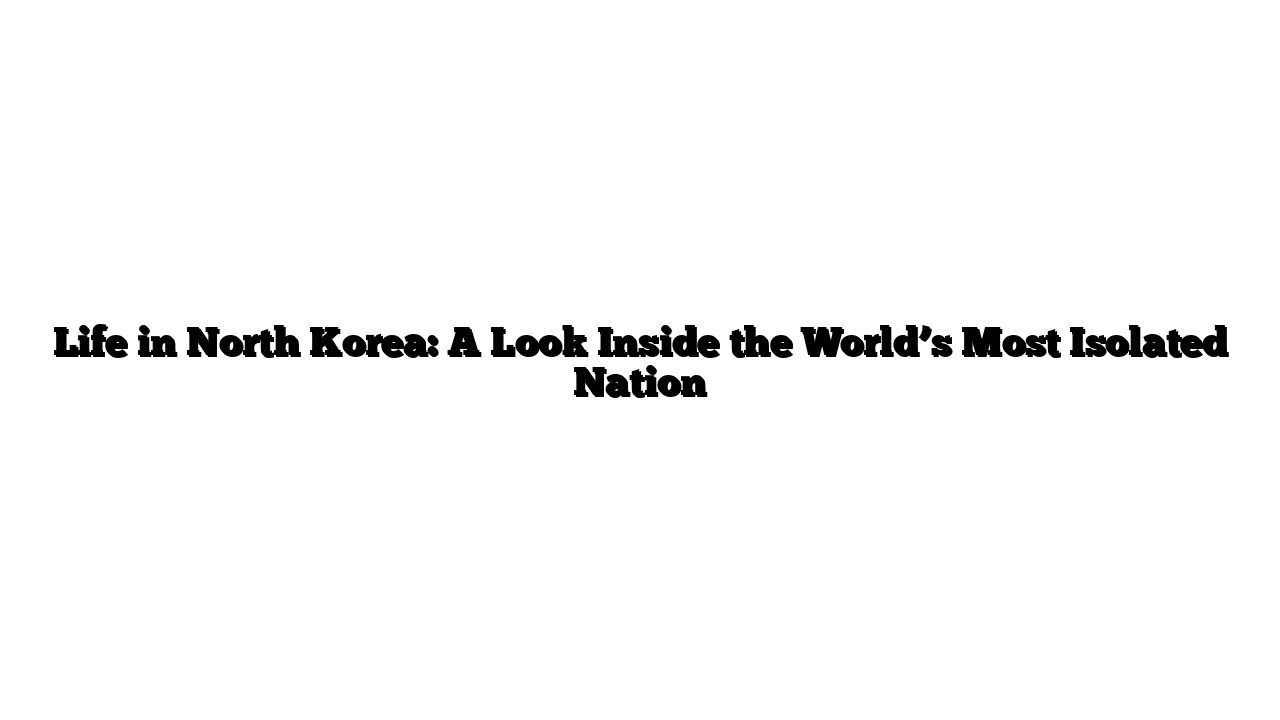North Korea, one of the most isolated countries in the world, presents a reality far removed from what most people know. With a population of about 26 million, the country is ruled by a strict regime led by the Kim family. Life for the people there is not just challenging—it’s life under constant surveillance, where even a simple act like listening to foreign music or watching a South Korean K-Pop video can lead to severe punishment.
A Nation of Strict Control and Severe Consequences
The Cost of Defying Authority
In a nation where even the smallest acts of defiance can lead to extreme consequences, escaping the country is a crime punishable by death. Defectors who try to flee North Korea often find themselves betrayed by neighboring countries like China, where they are handed back to the regime and face torture or execution. In 2017, a woman and her son, who had fled to China, were returned to North Korea, where the woman was executed for attempting to escape.
Harsh Punishments and Propaganda
The North Korean government uses executions and public punishments to instill fear in its people. These punishments are often carried out in public arenas like stadiums, with the bodies of the executed displayed to remind citizens of the dangers of disobedience. Despite these brutal tactics, the North Korean government maintains a constant propaganda machine that glorifies the regime and the ruling Kim family. They tell the people that their country is the greatest, and their supreme leaders are like gods.
Education and Military Service: Brainwashing from Birth
Education in North Korea is a tool of state control. Children are indoctrinated from an early age to worship the Kim family, with stories of their divine leadership taught in every subject, from science to history. The government even controls the content of textbooks, ensuring that the supreme leaders are always praised. Military service is mandatory for everyone, and for women, this can extend until the age of 23. There are special units tasked with pleasing the highest officials in the country, ensuring loyalty and control.
Economic Struggles and Extreme Poverty
Life in North Korea is marked by extreme poverty, despite the government’s insistence on a prosperous society. The average salary in North Korea is meager, and even government employees or soldiers are unable to afford basic necessities. In fact, the country’s citizens often turn to illegal black market trading to survive. A soldier might receive a monthly ration of rice, corn flour, and soup, but this is barely enough to sustain them. The food shortage worsened in 2019, leaving many people with only 300 grams of food per day, which is far below the required amount for survival.
A World of Fear and Despair
The lives of North Koreans are often marked by depression, trauma, and a constant struggle for survival. With limited access to food, clean water, and basic freedoms, people are forced to live under constant stress and fear. Those caught trying to escape face brutal punishment. Many end up in labor camps, where the conditions are so severe that nearly 40% of prisoners suffer from nutritional deficiencies. Family members are often punished together, with children and women facing the worst of the physical and mental abuse.
The Price of Freedom
Despite the heavy oppression, there are still some who manage to escape North Korea. For those who do, the memories of the harsh reality they left behind stay with them forever. As one defector shares, being born in a labor camp meant having no knowledge of the outside world, no concept of family, and no freedom. The price of defying the regime is often death, but for many, escaping is the only option for survival.
The Reality of North Korea
The true picture of life in North Korea is one of hardship, fear, and control. The people there are taught from birth to worship their leaders and to live under the strictest conditions. While the outside world remains largely unaware of the struggles of the North Korean people, defectors continue to share their stories, offering a glimpse into one of the most oppressive regimes in the world.
